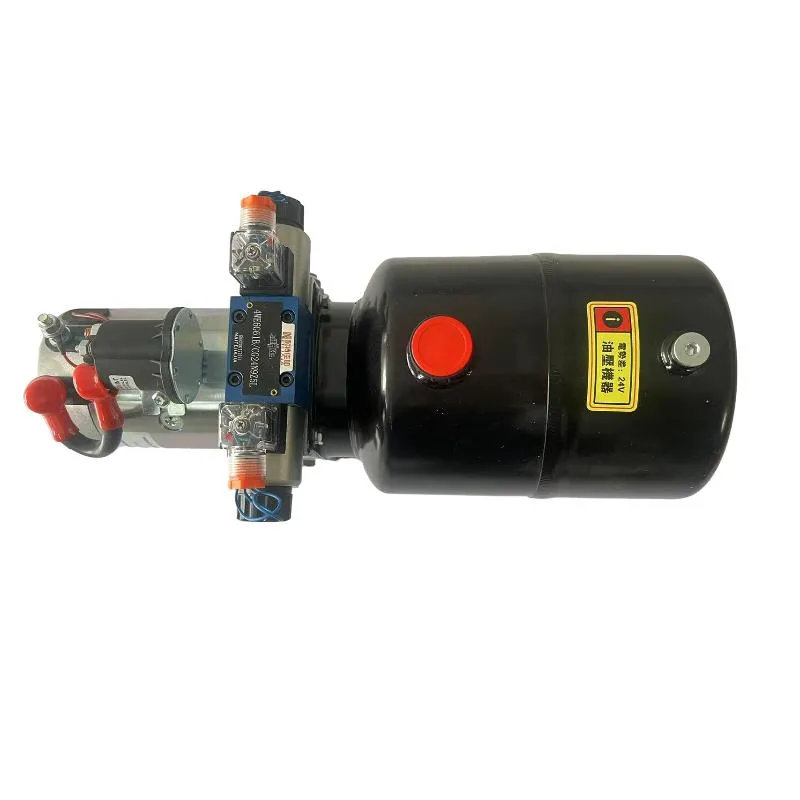Nov . 27, 2024 04:25 Back to list
Wireless Sensor for Hydraulic Cylinder Applications and Monitoring Solutions
Understanding Sensor Hydraulic Cylinders Enhancing Performance and Precision
In the world of industrial automation, hydraulic systems play a crucial role in powering heavy machinery and equipment. Among the key components of these systems are hydraulic cylinders, which are devices that convert hydraulic energy into mechanical force. With the advent of technology, the integration of sensors into hydraulic cylinders has revolutionized their functionality, leading to improved performance, accuracy, and safety in various applications. This article explores the importance of sensor hydraulic cylinders, their applications, and the benefits they bring to modern machinery.
What Are Sensor Hydraulic Cylinders?
Sensor hydraulic cylinders are specialized hydraulic cylinders equipped with sensors that monitor and report various parameters during their operation. These sensors can measure positions, pressure, temperature, and other critical factors that influence the system's efficiency and performance. By collecting real-time data, these sensors allow for better control and management of hydraulic systems, leading to optimal performance and reduced risks of failure.
Applications of Sensor Hydraulic Cylinders
1. Manufacturing Industry In manufacturing, hydraulic cylinders are widely used in various applications, such as robotics, assembly lines, and material handling. By integrating sensors, manufacturers can gain valuable insights into the performance of their hydraulic systems, ensuring smooth operations and reducing downtime.
2. Construction Equipment Hydraulic cylinders are vital in heavy machinery like excavators, loaders, and cranes. Sensor-equipped hydraulic cylinders provide real-time feedback on pressure levels and positions, allowing operators to perform precise movements and improve overall efficiency.
3. Aerospace and Aviation In the aerospace industry, the reliability of hydraulic systems is paramount. Sensor hydraulic cylinders are used in landing gear mechanisms, flight control surfaces, and cargo systems. The sensors help monitor the health of the hydraulic system, ensuring safety and compliance with stringent regulations.
4. Automotive Industry Modern vehicles often incorporate hydraulic systems for functions such as braking, steering, and suspension. Sensor hydraulic cylinders enhance the performance of these systems by providing feedback that allows for real-time adjustments, thus improving ride quality and safety.
sensor hydraulic cylinder product

Benefits of Using Sensor Hydraulic Cylinders
1. Increased Precision One of the primary advantages of sensor hydraulic cylinders is their ability to provide accurate measurements. This precision allows for better control of the machinery, resulting in improved performance and reduced material wastage.
2. Predictive Maintenance With sensors continuously monitoring the condition of the hydraulic system, it is possible to predict potential failures before they occur. This predictive maintenance approach reduces unplanned downtimes and lowers maintenance costs by addressing issues proactively.
3. Enhanced Safety Sensor hydraulic cylinders increase operational safety by monitoring critical parameters. If a sensor detects an anomaly, such as excessive pressure or temperature, it can trigger alarms or automated safety protocols to prevent accidents and equipment damage.
4. Data-Driven Decisions The real-time data collected from sensor hydraulic cylinders can be analyzed to make informed decisions. Businesses can optimize their operations based on concrete evidence, improving efficiency and resource allocation.
5. Energy Efficiency By fine-tuning hydraulic systems based on sensor feedback, manufacturers can decrease energy consumption. Efficient hydraulic operations lead to lower operational costs and a reduced environmental impact.
Conclusion
As industries continue to evolve towards automation and smart technologies, the importance of sensor hydraulic cylinders cannot be overstated. Their ability to enhance precision, ensure safety, and facilitate predictive maintenance illustrates their value in modern applications. With ongoing advancements in sensor technology and data analytics, the future of hydraulic systems looks promising. Industries that embrace these innovations will not only gain a competitive edge but also contribute to a more efficient and sustainable industrial landscape.
-
Fork Lift Power Units - Hebei Shenghan | Efficiency, Reliability
NewsJul.13,2025
-
1.5-Ton Turbocharged Cylinder-Hebei Shenghan|Hydraulic Solution,Energy Efficiency
NewsJul.13,2025
-
Auto Hoist Power Units-Hebei Shenghan|Efficiency&Industrial Lifting
NewsJul.13,2025
-
Double Acting Power Units-Hebei Shenghan|Hydraulic Solutions,Industrial Efficiency
NewsJul.13,2025
-
1.5 Ton Lifting Cylinder 70/82-40-290-535 - High-Performance Hydraulic Solution | Hebei Shenghan
NewsJul.13,2025
-
Fork Lift Power Units - Hebei Shenghan | Efficiency&Reliability
NewsJul.13,2025
